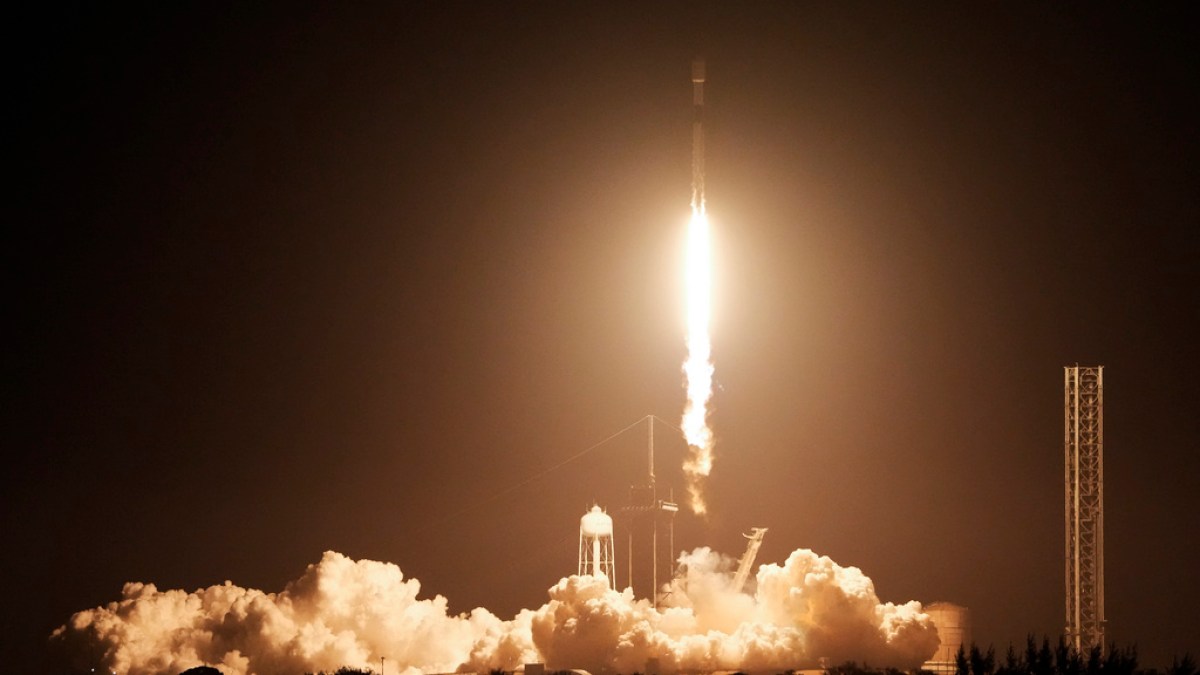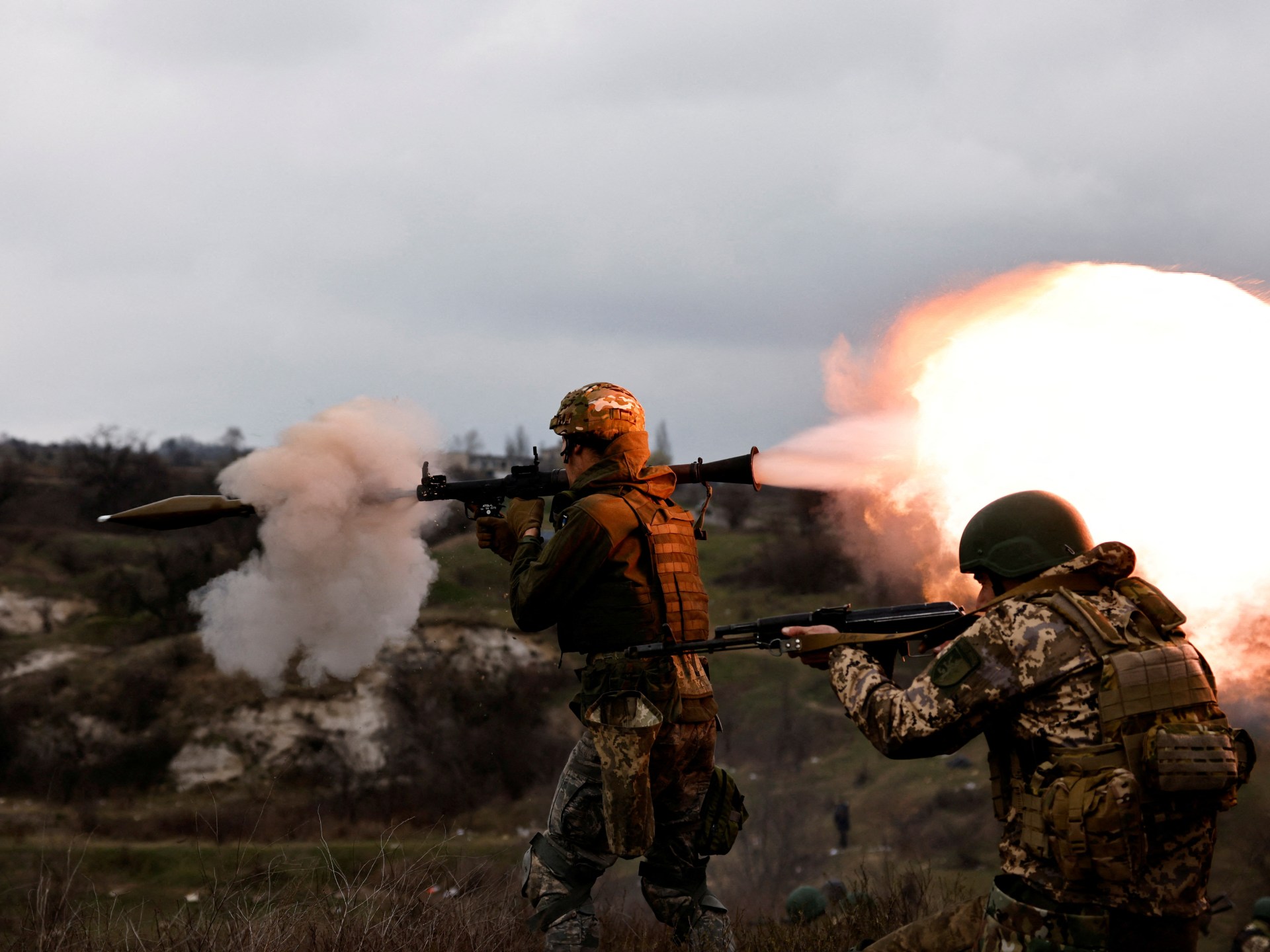Ukraine pushes to reclaim Bakhmut fighting on fallen city’s flanks
The moon was up. The night was still. The sky was clear — all excellent conditions to pinpoint a mortar strike or float a drone so close to Russian front lines that incoming Ukrainian artillery could be heard whistling on the ride down.
“We will find them with the drone, and we will hit them,” said Lisnyk, the Ukrainian special forces team leader, who requested to be identified by his call sign in keeping with military protocol. “If we don’t find them, we’ll look elsewhere.”
But the team’s first drone to go up went missing, perhaps lost to Russian jammers, and they decided not to risk another — the second time within two days that bad weather or bad luck slowed their effort to reclaim the eastern city of Bakhmut in an inch-by-inch battle on its flanks.
So goes the grinding Ukrainian counteroffensive on a small but important sector of the 600-mile front. The fight in villages around Toretsk, where some battle lines have hardly budged since 2014, reflects the difficulty Ukraine faces in breaking a stalemate when the only real air power to speak of comes from drones.
The capture of Bakhmut in May, after the war’s longest and bloodiest battle, was Moscow’s only significant territorial gain so far in 2023. Wagner mercenaries, who led the months-long siege of the city, claimed victory in May and quickly withdrew, turning over responsibility for holding it to regular Russian units.
Now, with Ukraine mounting its long-awaited counteroffensive, the battle has shifted to the destroyed city’s flanks. “We are trying to pin as many Muscovites as possible around Bakhmut,” said Mykola Bielieskov, a research fellow with Ukraine’s National Institute for Strategic Studies.
To the north, the Ukrainians have pushed toward Yagidne and Berhivka. To south, they’ve been moving on Klishchiivka and Kurdyumivka amid a landscape dotted with abandoned coal mines and giant slag piles grown over with trees.
Ukrainian troops have also encountered Wagner Group’s successors for the first time — a force known as Storm Z that is under the control of Russia’s Defense Ministry and includes a mix of reservists, conscripts and convicted criminals.
By the end of June, Ukraine’s 3rd Assault Brigade eliminated a Russian bridgehead on the western bank of the Siverskyi-Donets-Donbas canal, its commander reported on Telegram.
The canal is a key source of water for the Russian-occupied parts of Donetsk region. Securing the waterway also means controlling high ground southwest of the city, said Gerych, the leader of a mortar company in 3rd Assault Brigade located two kilometers or less from the waterway.
To reach his position, Gerych, a 27-year-old sergeant, jumped on a quad-runner and blazed up a dusty road, bumping over ruts and swerving around mudholes. He roared by an armored personnel carrier ferrying troops to the rear before climbing a grassy ridge overlooking Klishchiivka, a settlement about four kilometers from Bakhmut on the city’s southern edge.
At the fire base — code named “Alabama” — a gun crew was preparing to lob a batch of 82mm mortar rounds into Russian positions less than two kilometers away.
Their pace of fire had picked up as Ukrainian infantry advanced: 60 rounds overnight, Gerych said, compared to the usual 40 or so. In fact, the front line had advanced so far, Gerych said, that his company was approaching the limit of its effective range. He said orders had already come to advance the following day.
That was progress enough for Gerych, who said his company didn’t need any prodding.
The following day, Anton Gerashchenko, an adviser to Ukraine’s Interior Ministry, reported on Telegram that Klischchiivka had been liberated — a claim acknowledged with regret by Ivan Sladkov, a pro-Russian military blogger with more than 1 million followers.
Sladkov wrote on Telegram that he feared the fall of the Klishchkiivka meant Bakhmut, too, could soon change hands — but then reversed himself hours later, claiming his sources had been mistaken about the town’s capture.
Amid the up and down battle against perceptions and enemy positions, the Ukrainian special forces team thought things looked promising for their mission to shell Russian lines north of Druzhba.
While two soldiers dug a mortar pit in the weedy yard behind the kindergarten, another set up a tripod and helped zero in the 120mm weapon using a distant point on the horizon. Inside the ruined school, the squad leader brewed coffee on a propane stove.
Lisnyk said his special forces unit sent out drones and recon patrols on foot — sometimes within 500 meters, roughly a third of a mile, of enemy lines — to hunt possible targets, such as ammo dumps, troop concentrations and armor.
Two days earlier, they had spotted signs of hidden Russian bunkers and a signal-jamming station, but wet weather prevented them from taking a closer look with a drone. And now this night — another drone lost, another too risky to fly.
The delays are typical, and frustrating.
Ukraine’s military — from its highest ranking general to grunts in the field — hears the world tapping its foot and sifting daily battlefield reports for hints of progress. Many Ukrainian soldiers shrug off the expressions of impatience from the United States and European supporters. But some soldiers get a little salty.
“They just need to chill out — because they’re idiots,” said Sgt. Alen Dudnik, who is credited with shooting down a Russian fighter jet with a shoulder-mounted rocket in Bakhmut during the siege led by Yevgeniy Prigozhin’s Wagner Group mercenaries.
Dudnik and other Ukrainians have suggested that the West’s expectations for swift progress in the counteroffensive have sometimes outpaced the delivery of promised weapons. They ask: When was the last time a modern army was expected to mount a major offensive without fighter jets to control the skies?
Soldiers also complain — often privately, in a war where front line access is limited and public information officers try to shape the messaging — about ammunition shortages and insufficient training for combat. The terrain Ukraine is now struggling to reclaim also includes breakaway areas where the sympathies of local residents can be uncertain.
Dudnik, whose antiaircraft unit in the 93rd Brigade was rotated out of the city to rest about six weeks ago, said anyone with basic military knowledge should understand the daunting challenge of pushing back an invader with superior air power and a greater number of forces.
“This is not going to be as fast as they expect,” Dudnik said, illustrating with toothpicks in a gas station cafe why an army’s offensive operations typically require force ratios of around 4-to-1 to succeed against a defender.
After Russian President Vladimir Putin ordered the invasion in February 2022, Russian forces tried to seize all of Luhansk and Donetsk, eventually overrunning heavily engineered Ukrainian fortifications near Bakhmut and repurposing them against Ukraine.
Getting to Russian lines now means crossing a no man’s land of mines, trenches and “dragon’s teeth,” an antitank defense harking back to World War II built of concrete or metal points protruding from the earth.
To advance, Ukraine’s military has engaged in cat-and-mouse efforts to find openings and weak spots where smaller units can slip in, hit targets and roll out, while heavy artillery pops off from farther away.
No one is more eager for the counteroffensive to progress than the Ukrainian commanders and soldiers in the field.
“The soldiers themselves want it to end quickly and not drag on,” Lysnyk said.
Garych, the sergeant, said critics should put up or shut up. “It just gets boring,” he said of he complaints that Ukraine’s counteroffensive is too slow-going. “You can just come here and help if you feel that it’s not going fast enough.”
Check out our Latest News and Follow us at Facebook
Original Source







